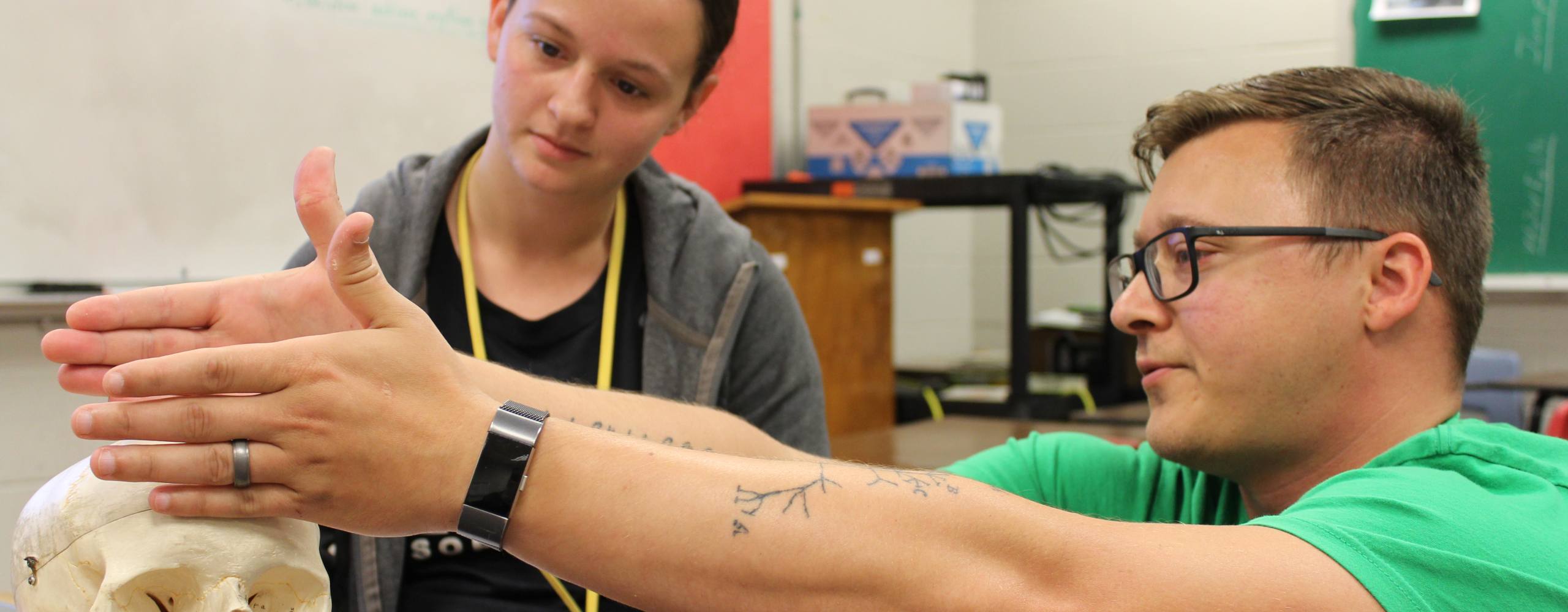In the biology courses that I teach, evolution is the anchor for all my units. I use the discovery of the theory of evolution by means of natural selection to teach about the nature of science starting the first week of school. I teach about the endosymbiotic theory to explain the evolution of complex, membrane-bound organelles in eukaryotic cells. I discuss the importance of genetic diversity within a population with regard to evolution and the maintenance of healthy populations during my cell division unit. I point out the plethora of errors, leftover parts, and quirky bits of anatomy that are the result of evolution when teaching about body systems and diseases. There is no unit that I teach in which evolution doesn’t connect, deepen, and explain the phenomenon we see in biology.
Just ask the students
Blake Touchet, an NCSE Teacher Ambassador and biology teacher in Louisiana, went straight to the source: he asked his students why learning about evolution is important.

So, to put it mildly, by the time we reach the “evolution unit” in our curriculum, my students are already pretty familiar with the general concept of evolution, and they are looking forward to finally learning the details and mechanisms by which it happens. This year, though, I decided to try something a little different. Instead of starting our evolution unit by telling the students why evolution is important, I asked them to tell me why they thought learning about evolution was going to be important to them. Wow, was I impressed (and amused)! Here are some of my favorite responses:
“Learning about evolution is important because if we understand how we got here, we can predict where we might go.”
“Understanding evolution is important because if we want to protect animals from extinction, we need to know how they fit into their environments. This will tell us what we need to give them or protect in their habitat for them to survive.”
“Even if I don’t completely understand evolution, I hope my doctor does, because many diseases can’t be treated unless you know how they got there in the first place.”
“Learning about evolution is important because if we know how we evolved, then we will understand how to eat and exercise in order to be healthy.”
“It explains why everyone in my family needs glasses and braces. Thanks a lot evolution!”
“People need to learn about evolution so that they can make good decisions about things like getting the flu shot and taking medicines correctly.”
“Learning about evolution is important because it shows us that we are all related. All humans alive today share a common ancestor if we go back far enough in our family tree. So basically, understanding evolution is the cure to racism. How are you going to be prejudiced against your own family?”
As my students' responses demonstrate, they all recognize that understanding evolution is connected to something that is deeply important and personal to them. They want to know where they came from, how to stay healthy, why they look the way that they do, how to save endangered species, and how to fight against social injustice. And they recognize that understanding evolution is a key piece in answering these questions.
I could discuss further why I personally think evolution education is important. I could go on about how it elegantly explains the unity and diversity of all life on our planet, provides us with the tools we need to enhance our lives and protect biodiversity, and how its discovery serves as a shining example of scientific ingenuity. But I think I’ll just let my students speak for me. If you want to know why we should teach evolution, just ask them!

